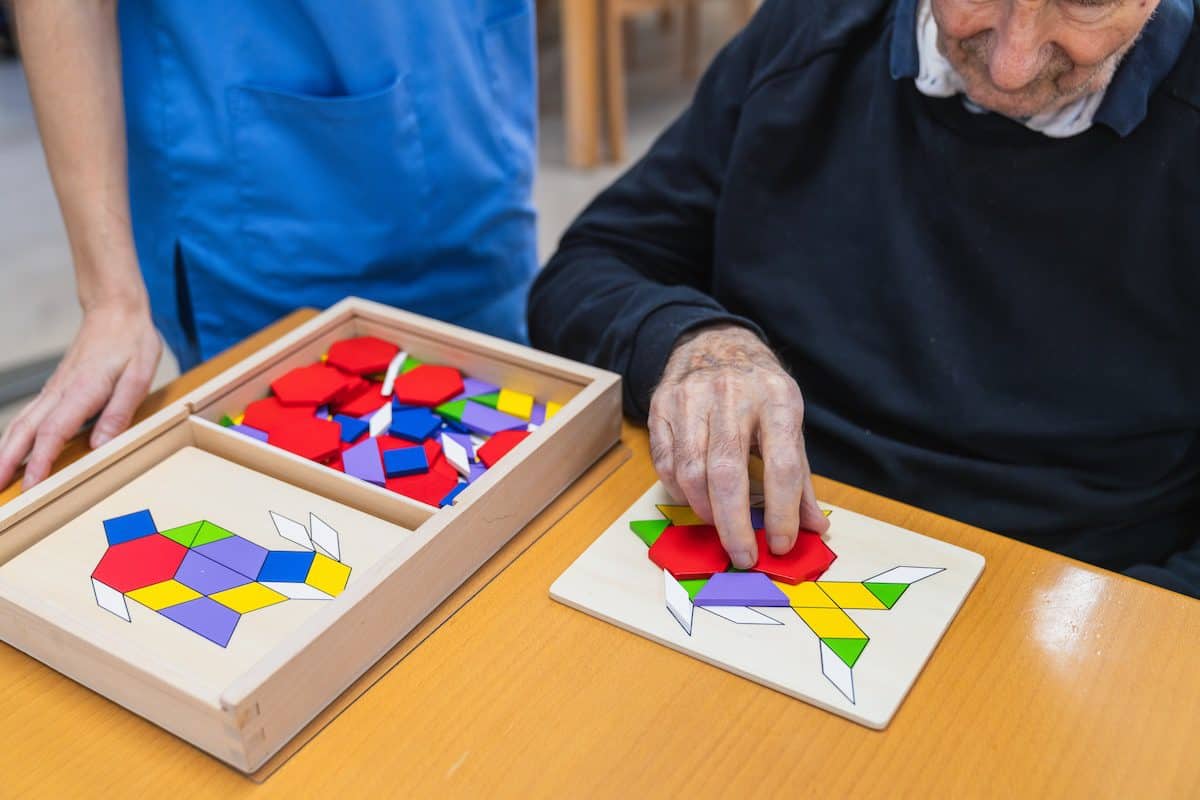As we age, maintaining brain health becomes increasingly important. Cognitive decline is a common concern for seniors, but there are many ways to keep the mind active and engaged.
Prioritizing brain health can improve quality of life, enhance mental clarity, and even delay the onset of cognitive impairments such as dementia and Alzheimer’s disease.
This blog post will explore the importance of brain health for seniors and provide practical strategies for keeping the mind sharp and engaged.
The Importance of Brain Health
Cognitive Function and Quality of Life
Brain health is essential for preserving cognitive functions such as memory, reasoning, problem-solving, and decision-making. Maintaining these abilities allows seniors to live independently, manage their daily activities, and stay socially connected.
Good cognitive function contributes to a higher quality of life, providing a sense of purpose and satisfaction.
Mental Health and Emotional Well-Being
A healthy brain supports emotional well-being by regulating mood and stress responses. Engaging in activities that stimulate the brain can help reduce symptoms of depression and anxiety, which are common among older adults. A positive mental state is crucial for overall health and happiness in later life.
Delaying Cognitive Decline
While aging naturally brings some level of cognitive decline, staying mentally active can slow this process. Research shows that continuous learning and mental challenges can help create new neural connections, enhancing brain plasticity.
This can delay the onset of age-related cognitive impairments and improve overall brain function.
Strategies to Keep Your Mind Active and Engaged
Lifelong Learning
Engage in continuous learning by taking up new hobbies, attending classes, or learning a new language. Many community centers and educational institutions offer courses specifically designed for seniors.
Online platforms also provide a vast array of learning opportunities that can be accessed from the comfort of your home.
Physical Exercise
Regular physical exercise is not only good for the body but also for the brain. Activities like walking, swimming, and yoga increase blood flow to the brain and promote the growth of new neurons. Exercise also helps reduce stress and improve mood, contributing to better cognitive health.
Social Engagement
Staying socially active is crucial for brain health. Engaging with friends and family, participating in social clubs, or volunteering can provide mental stimulation and reduce feelings of loneliness and isolation. Meaningful social interactions are linked to better cognitive function and a reduced risk of dementia.
Mental Exercises
Challenge your brain with activities that require thinking, strategy, and problem-solving. Puzzles, crossword puzzles, Sudoku, and strategy games like chess can keep your mind sharp.
Even everyday activities like cooking, gardening, and DIY projects involve planning and coordination, which are beneficial for cognitive health.
Healthy Diet
A balanced diet rich in antioxidants, vitamins, and healthy fats supports brain health. Foods like berries, leafy greens, nuts, fish, and olive oil are known for their brain-boosting properties. Staying hydrated and limiting the intake of processed foods and sugar also contribute to better cognitive function.
Quality Sleep
Sleep plays a vital role in brain health. During sleep, the brain processes and consolidates memories, and clears out toxins. Seniors should aim for 7-9 hours of quality sleep per night.
Maintaining a regular sleep schedule, creating a comfortable sleep environment, and avoiding caffeine and heavy meals before bedtime can improve sleep quality.
Stress Management
Chronic stress can negatively impact cognitive function. Techniques like mindfulness meditation, deep breathing exercises, and yoga can help manage stress levels. Finding time for relaxation and activities you enjoy can also reduce stress and promote mental well-being.
Regular Health Check-Ups
Regular medical check-ups can help detect and manage health conditions that may affect cognitive function, such as hypertension, diabetes, and thyroid disorders. Keeping these conditions under control is essential for maintaining brain health.
Discuss any concerns about memory or cognitive changes with your healthcare provider to receive appropriate guidance and treatment.
Cognitive Training Programs
Consider participating in cognitive training programs designed to improve specific cognitive skills. These programs, often available online or through healthcare providers, include exercises and activities tailored to enhance memory, attention, and problem-solving abilities.
Creative Activities
Engaging in creative activities like painting, writing, playing a musical instrument, or crafting can stimulate the brain and foster a sense of accomplishment. Creativity encourages new ways of thinking and problem-solving, promoting mental flexibility and cognitive resilience.
Incorporating Brain Health into Daily Routine
Set a Schedule
Incorporate brain-healthy activities into your daily routine by setting a schedule. Dedicate specific times for physical exercise, social interactions, mental exercises, and relaxation. Consistency is key to reaping the benefits of these activities.
Combine Activities
Combine different activities to maximize their benefits. For example, join a dance class to engage in physical exercise, learn new moves, and socialize with others simultaneously. Cooking a new recipe involves planning, coordination, and creativity.
Stay Curious
Cultivate a mindset of curiosity and exploration. Try new activities, explore new places, and keep an open mind. Staying curious keeps the brain active and engaged, promoting lifelong learning and mental flexibility.
Monitor Progress
Keep track of your progress and celebrate your achievements. Whether you’ve learned a new skill, completed a challenging puzzle, or maintained regular social interactions, acknowledging your efforts can motivate you to continue prioritizing brain health.
Maintaining Brain Health in Hospice Care
Maintaining brain health in hospice care is essential for enhancing the quality of life for patients. Even in the final stages of life, engaging in activities that stimulate the mind can provide comfort and a sense of normalcy.
Simple cognitive exercises, meaningful conversations, and reminiscing about past experiences can help keep the brain active.
Additionally, creating a calming and familiar environment with music, art, or reading can contribute to emotional well-being and mental clarity during this sensitive time.
Final Thoughts
Maintaining brain health is essential for seniors to enjoy a fulfilling and independent life. By keeping the mind active and engaged through lifelong learning, physical exercise, social interactions, and other brain-healthy practices, seniors can enhance cognitive function, improve mental health, and delay cognitive decline.
Incorporating these strategies into daily routines not only benefits the brain but also contributes to overall well-being and quality of life. It’s never too late to start prioritizing brain health, and the efforts you make today can lead to a healthier, happier future.


